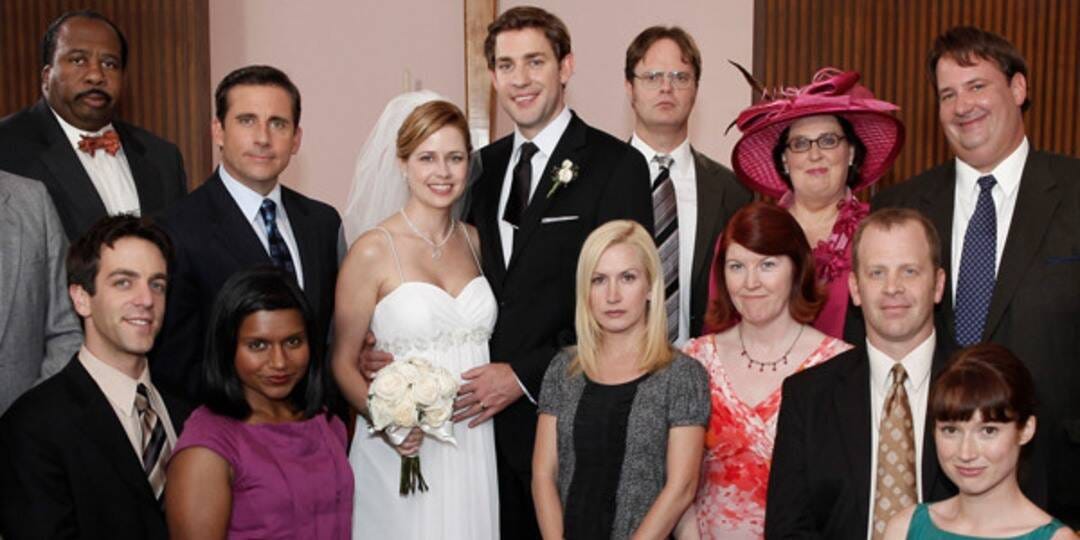There is no public square in the modern world. Family and religious structures have been eroding for decades. There is no clear place for anyone to find community or meaning. The most common remaining place for community is the workplace. So it’s perhaps not surprising that The Office remains so popular and relatable to such a wide audience today, over 8 years since its last episode. There are two new podcast series about the show, by the actors who were on the show. Anyone who’s been on dating apps in the past 10 years has seen profiles talking about being “the Pam to your Jim” or vice-versa. And so on and so on.
The Office features a diverse cast of dysfunctional, insane idiots. But the message throughout the entire show is that this is our cast of dysfunctional, insane idiots, who are ultimately still lovable, despite their flaws. Other popular shows like 30 Rock and Parks and Rec follow the exact same format. On the other hand, popular sitcoms of the previous generation — The Simpsons, Family Matters, Full House, Home Improvement, Married With Children — carried a similar message, except with the key difference that this narrative was about actual families rather than corporate workplaces.
Indeed, it is exceedingly common nowadays for a corporate workplace to refer to itself as a “family”. It is only controversial when companies take the opposite stance. Of course, “family” is just a way to trick employees into working harder and longer hours, but nevertheless it provides a welcome sense of meaning for people who have few other sources of meaning in their lives. The Office takes this idea to a comical extreme with its entirely useless group of incompetent paper-pushers wreaking daily chaos. There is no redemption to be had but the sense of familial bond that’s created among coworkers in these “trenches”.
Is the show at some level, therefore, neoliberal propaganda? I am not making that argument. Rather, I am reading the show’s enduring popularity as reflective of people’s yearnings for truer human bonds in a world where those bonds are increasingly hard to find.
We mustn’t be fooled; The Office remains pure fantasy. In reality, even though your boss may be a funny idiot like Michael Scott, they don’t actually hold any underlying warm and fuzzy feelings about you like Michael Scott does for his employees. Real familial feelings are not possible with your boss, because those feelings must be unconditional, but your relationship with your boss and your workplace is fundamentally conditioned upon your productivity. And if we take Venkatesh Rao’s Gervais Principle seriously, then the corporate workplace is a cesspool of sociopaths, and why should we invest our feelings in such a silly and corrupt game?
As for love, the romance of Jim and Pam is also fantasy. In reality, romances in office or professional settings are fraught and dangerous; women can risk career set-backs either way, whether they pursue such romances or not. Meanwhile, a lack of community in general means that yuppies do not have good ways to meet dating partners in less fraught real-life settings. The only option other than dating apps is the one remaining community in which they are involved, the one remaining community that exists for them, the professional community.
I remember that, when I began my professional career, I felt so lonely and disappointed at how I felt so different and alienated from the vast majority of my coworkers. Not that my coworkers were intentionally trying to alienate me, to the contrary, they were always very inclusive and nice. But I just felt that I did not have common interests with most of them; I had low tolerance for the types of lunch discussions that they preferred, talking about where they’d travelled for their vacations, or that new Star Wars movie they’d watched over the weekend; I had little interest in the career aspirations (read: promotions and compensation) that the others seemed so obsessed about.
Contrary to The Office, my solution to this problem has been mostly to compartmentalize my work life and my personal life as separate entities which satisfy different desires and goals. I no longer hope or expect to find deep relationships at work, although I am still grateful on the rare occasions when I do. But I try to view my job just as a place where I make my living and where, if I’m lucky, I also have the opportunity to work on interesting problems that satisfy my intellect, as a bonus. The ultimate meaning in my life is derived elsewhere, in my friends and family, in my personal growth and maturity.
Is it sad to resign to a reality where I don’t expect fulfilling bonds in a work setting? I don’t think it is. I think it is just a fact of life. I don’t think humans found or sought those bonds from their work in prior history, and why should we now?





The theme of the workplace is your "family" is also used in anti-union campaigns. ("We don't need outsiders, we're a family here" etc etc). And I think this is a healthy attitude about work; important too to let work relationships develop and work on them, including with people who are different than you.